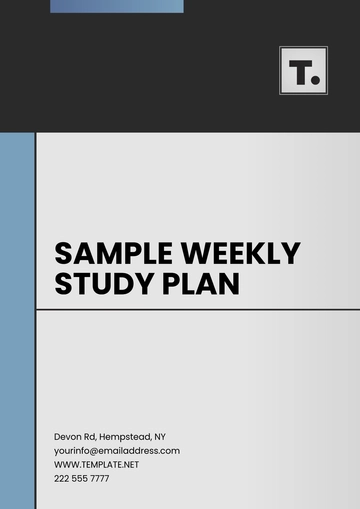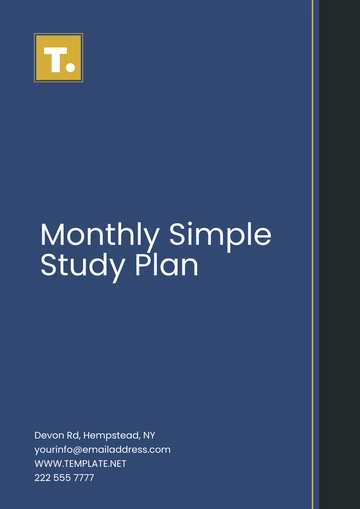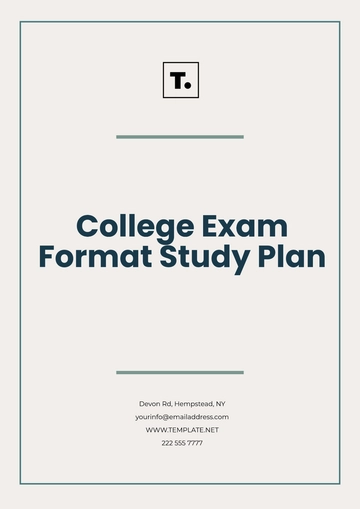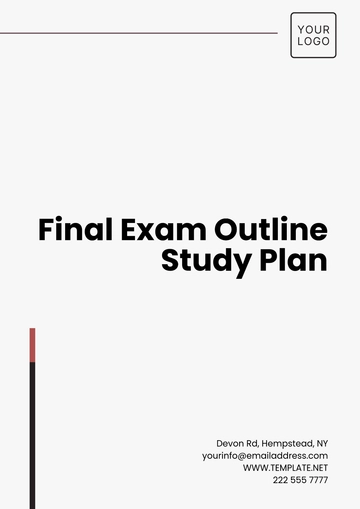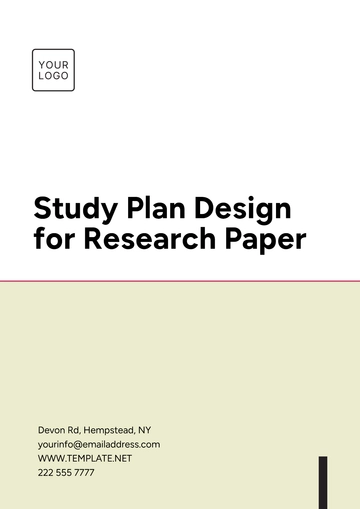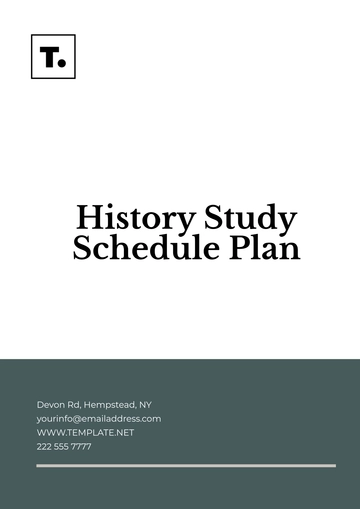Free Healthcare Study Plan
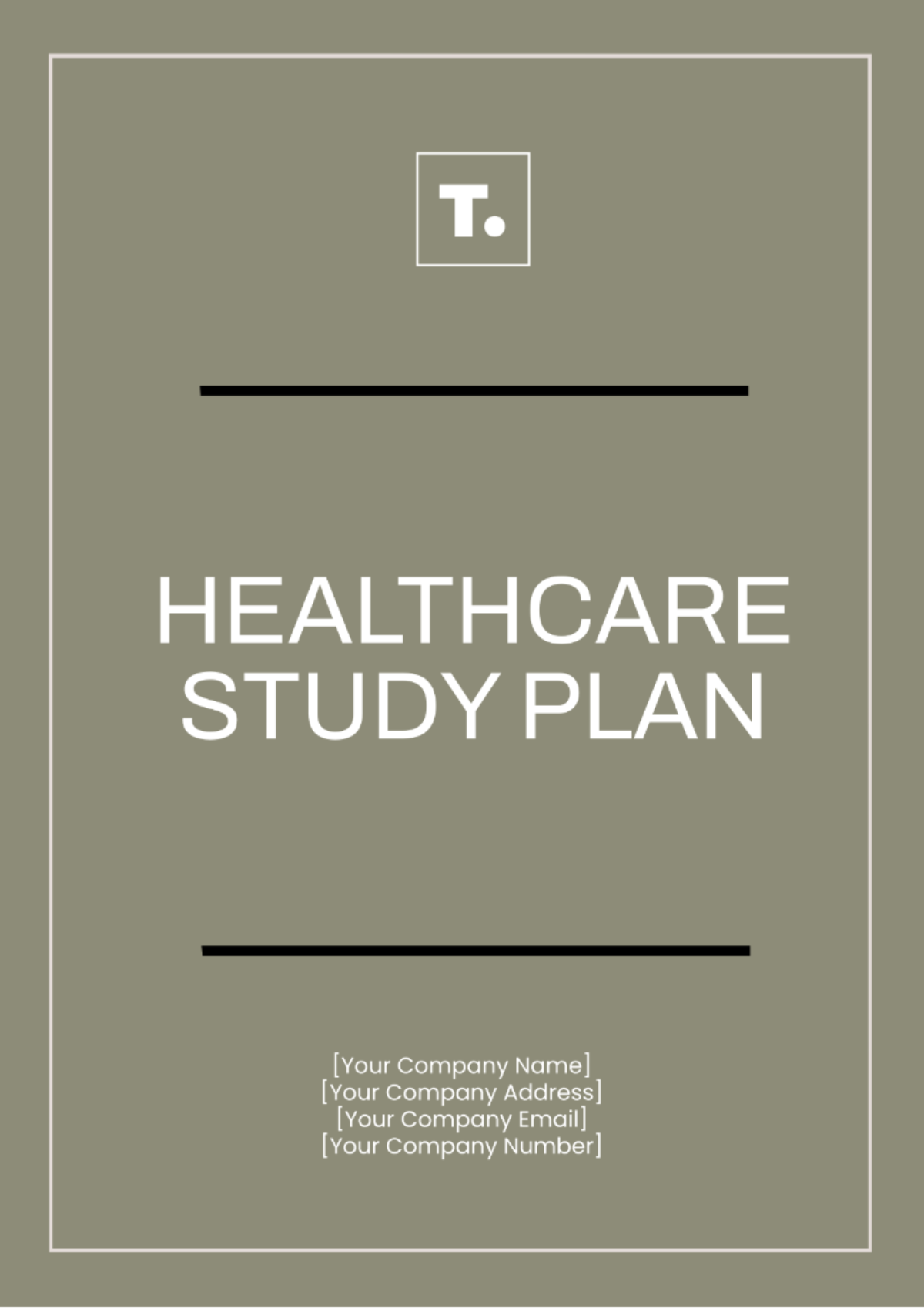
Researcher: | [Your Name] |
Website: | [Your Company Website] |
Date: | April 1, 2050 |
I. Introduction
A. Overview
Our organization, [Organization Name], is committed to addressing the healthcare disparities faced by cancer patients residing in rural communities. With advancements in telemedicine technology, there is an opportunity to revolutionize cancer care delivery and improve access to specialized services for individuals living in remote areas. This study aims to explore the potential of telemedicine in transforming the healthcare landscape for rural cancer patients.
B. Objectives
Evaluate the effectiveness of telemedicine interventions in addressing the healthcare needs of rural cancer patients, including diagnosis, treatment, and supportive care.
Identify the barriers and enablers influencing the adoption of telemedicine among this patient demographic, considering factors such as technological literacy, infrastructure limitations, and healthcare provider attitudes.
Assess patient satisfaction and outcomes associated with telemedicine utilization in cancer care, focusing on quality of life, treatment adherence, and healthcare utilization patterns.
C. Significance
Given the unique challenges faced by cancer patients in rural areas, understanding the potential of telemedicine to bridge gaps in healthcare access is imperative for improving patient outcomes and quality of life. By exploring the feasibility and effectiveness of telemedicine in oncology settings, our study aims to inform evidence-based strategies for optimizing cancer care delivery in underserved regions.
II. Literature Review
A. Summary of Prior Research
Existing literature underscores the promising role of telemedicine in delivering oncology services to rural populations, yet gaps persist in understanding its full impact and implementation challenges. Studies have highlighted the potential benefits of tele-oncology, including improved access to specialist consultations, reduced travel burden, and enhanced coordination of care.
B. Contextual Background
Rural cancer patients encounter obstacles such as limited access to specialized care, transportation barriers, and healthcare disparities, highlighting the urgency for innovative solutions like telemedicine. By leveraging technology to facilitate remote consultations, telemedicine holds promise for overcoming geographical and resource constraints, thereby improving equity in cancer care delivery.
III. Research Questions
How does telemedicine contribute to the delivery of cancer care services to rural patients, and what are the key determinants of its effectiveness?
What factors influence the uptake and utilization of telemedicine among rural cancer patients and healthcare providers, and how can potential barriers be mitigated?
What are the experiences and perceptions of cancer patients regarding telemedicine-delivered care, and how do these impact treatment outcomes and patient satisfaction?
IV. Methodology
A. Research Design
This study will employ a mixed-methods approach, incorporating quantitative surveys and qualitative interviews with cancer patients, caregivers, and healthcare professionals. By triangulating data from multiple sources, we aim to gain comprehensive insights into the complexities of telemedicine implementation in oncology settings.
B. Data Collection Methods
Surveys will gather quantitative data on telemedicine usage, patient satisfaction, and healthcare outcomes, while qualitative interviews will explore in-depth perspectives and experiences. Participant recruitment will be conducted in collaboration with rural oncology clinics, utilizing both convenience and purposive sampling techniques to ensure diverse representation.
C. Sampling Strategy
Participants will be recruited from rural oncology clinics and support groups across Midwest County, ensuring representation from diverse demographic backgrounds and cancer types. Efforts will be made to include individuals with varying levels of telemedicine experience to capture a broad spectrum of perspectives.
D. Data Analysis Techniques
Quantitative data will undergo statistical analysis using appropriate software, such as SPSS or R, to identify trends and associations. Qualitative data will be thematically coded and analyzed using established qualitative research methods, including constant comparison and thematic synthesis, to uncover underlying themes and patterns.
V. Timeline
Proposal development: May 2050
Ethics approval: June 2050
Participant recruitment and data collection: July 2050 - September 2050
Data analysis: October 2050 - November 2050
Report writing and dissemination of findings: December 2050 - January 2051
VI. Budget
The allocated budget encompasses expenses related to research personnel, data collection tools, participant compensation, and telemedicine infrastructure development. A detailed breakdown of expenses is provided in the accompanying budget proposal.
Budget Category | Description | Amount |
|---|---|---|
Research Personnel | ||
Research Coordinator | $25,000 | |
Data Analyst | $20,000 | |
Research Assistants (2) | $15,000 each | $30,000 |
Subtotal | $75,000 | |
Data Collection Tools | ||
Survey Software Subscription | $5,000 | |
Audio Recording Devices | $2,000 | |
Interview Transcription Services | $3,000 | |
Subtotal | $10,000 | |
Participant Compensation | ||
Gift Cards for Survey Participants | $3,000 | |
Reimbursement for Travel Expenses (for in-person interviews) | $5,000 | |
Subtotal | $8,000 | |
Telemedicine Infrastructure Development | ||
Telemedicine Platform Subscription | $15,000 | |
Equipment (cameras, microphones, etc.) | $10,000 | |
Technical Support Services | $5,000 | |
Subtotal | $30,000 | |
Miscellaneous Expenses | ||
Printing and Materials | $2,000 | |
Contingency Fund | $5,000 | |
Subtotal | $7,000 | |
Grand Total | $130,000 |
VII. Ethical Considerations
Ethical clearance will be obtained from the Rural Healthcare Innovations Institutional Review Board to ensure compliance with ethical standards and safeguard participant rights, privacy, and confidentiality. Informed consent will be obtained from all participants, and measures will be taken to anonymize data and protect sensitive information throughout the research process.
VIII. Expected Outcomes
Anticipated outcomes encompass valuable insights into the effectiveness of the intervention in managing treatment-related symptoms and improving the quality of life for cancer patients. The findings of our study have the potential to inform the development of tailored supportive care interventions and enhance the overall health and well-being of cancer patients undergoing treatment.
IX. References
Drawing upon a diverse range of scholarly literature, including peer-reviewed articles, clinical guidelines, and reports from cancer support organizations, underpins the scholarly foundation of our study and ensures the rigor and credibility of our research findings.
- 100% Customizable, free editor
- Access 1 Million+ Templates, photo’s & graphics
- Download or share as a template
- Click and replace photos, graphics, text, backgrounds
- Resize, crop, AI write & more
- Access advanced editor
Discover and Streamline your healthcare studies with the Healthcare Study Plan Template from Template.net. This fully customizable and editable template is designed to fit your unique needs. Easily personalize it with our Ai Editor Tool to create a study plan that works best for you. Achieve your goals with precision and efficiency.

